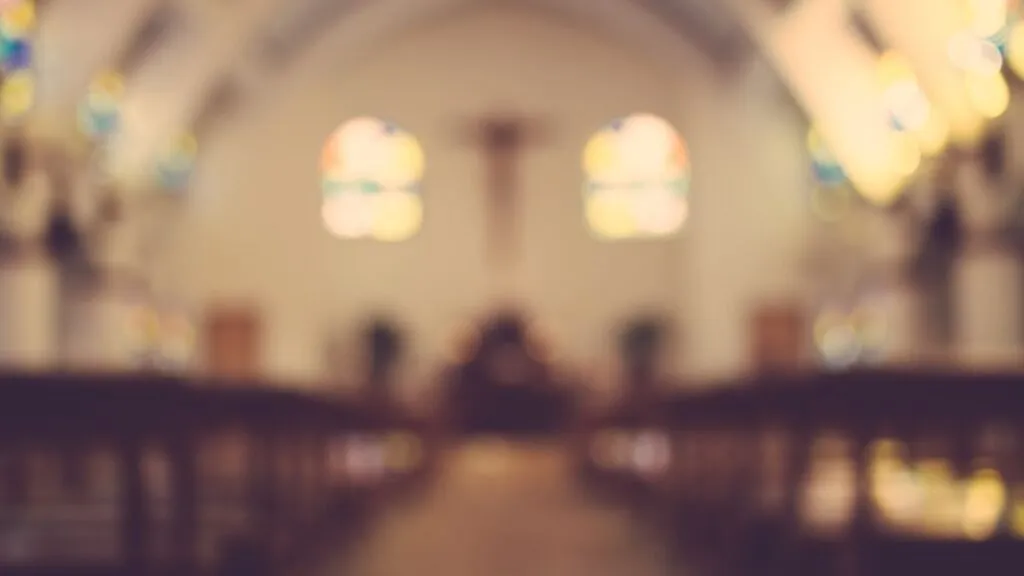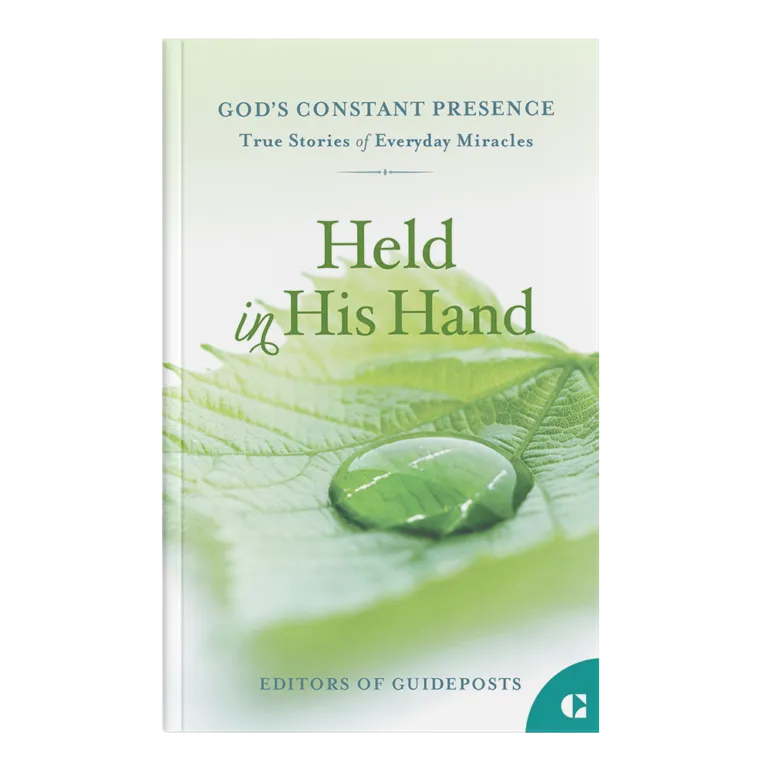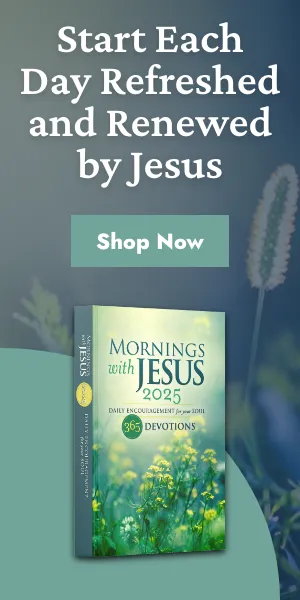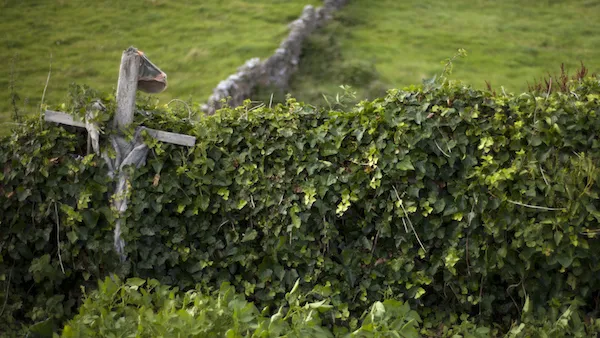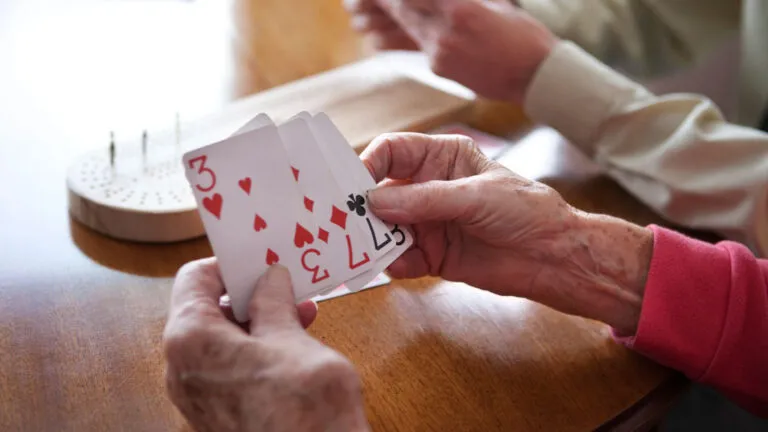This interview is part of our What Our Faith Calls Us To series.
Rev. Melanie Mullen was working as a political fundraiser in Washington D.C., when she began attending a local church after her mother urged her to start attending a religious service. There, she found a mentor in the women priest at the church and eventually felt a calling to become a priest herself.

Her first call out of seminary was to lead a church in Richmond, Virginia with the nickname the “Cathedral of the Confederacy.” Although the members at the church were progressive and devoted to serving local institutions, everyone who attended also lived on the other side of town in wealthier neighborhoods. In her tenure there, she helped lead interfaith work and worked with parishioners to remove confederate statues within the church. She now serves as the Director of Reconciliation, Justice and Creation Care for the Episcopal Church.
We spoke with Rev. Mullen about how people of faith can react to racial injustice and what our faith calls us to in regards to serving our neighbors.
GP: What do you think the response of people of faith should be to the recent global protests against racial injustice?
Rev. Mullen: We are all people, depending on your faith tradition, that have done some moment of initiation. For us [Episcopalians], it’s the Baptism. We really, clearly lay out, “Will you pursue justice? Strive for peace, respect, and dignity of all humankind?”
If you say that to an Episcopalian, they will reflexively say, “I will with God’s help.” We make a series of promises that lay out a vision of person and community. We have not been great at walking the walk, or even explaining how the connection between your pious church life connects to the community role, but we say it. We lay it out there. We say, “Jesus has a model for us to follow: Love your neighbor as yourself.” And we are hopefully learning to do that, or being invited to reimagine what it looks like now so that we’re actually doing it.
GP: Why do you think this is especially important work for people of faith?
Rev. Mullen: Although we might be very comfortable right now, our faith comes from a place of people that were oppressed, in bondage, fleeing, marginalized. I think it’s hard for us to remember that. Christianity is not the religion that started with the rich and powerful kings.
A lot of big religions [started with] people on the margins, who experienced what it’s like [for others to have power over them]. What our faith tells us and teaches us with the story of the Bible is [the story of] wandering, marginalized people on the fringes. It’s not illegitimate for us to want to lean into that as a part of our calling and identity through Christ or through our religious books and teachings. If we can’t live into what we were designed to be, nobody else can either.
GP: Why do you think that many faith communities have been slow to respond?
Rev. Mullen: That’s nothing new either. We have the infamy in the Episcopal tradition, of being able to say the letter from the Birmingham jail, written by Dr. King, was addressed to the Episcopalian bishop of Alabama.
We can easily say we’re all broken. We are. We are a big, mixed group of people, and as many of us have been blessed to live in privilege and comfort, it becomes harder and harder for us to go to that edge, which is scary, and look at the places in which we could be complicit in oppression. It gets really easy for us to make moral compromises. The benefit of living in a safe, happy place is that [we] are not physically connected to the lives of folks who are vulnerable. The more disconnected we get, the easier it is to tune it out.
GP: What practical ways do you think there are for people of faith to reconnect to experiences outside their church doors or the places they’re comfortable?
Rev. Mullen: That’s a good one. That’s another place where our tradition lays out some tools that we could lean into. The idea of testimony or “witness” in certain traditions—that’s all that friendship and solidarity is. It’s not necessarily a political notion. It’s hearing someone’s story. It’s inviting them to bring their whole self. It’s knowing and mattering and valuing a whole person. So many Christian traditions especially are based on the idea that a newcomer comes out of a baptism and tells their story or testifies, bears witness. Any way that we can do that in our church life, religious life or our civic life is a place we can build blocks of social change and connection.
GP: Lots of denominations and churches have long histories of being involved in racial injustice that can be difficult for people to acknowledge or reckon with. How do you think churches and individuals of faith can reckon with their own racial history?
Rev. Mullen: [It’s all about] a healthy approach to history. Last week, we convened the first-ever Episcopal justice assembly on Zoom. Five hundred people showed up to talk about what it means to be Episcopalians thinking about justice.
The Episcopal church has a story that’s full of twists and turns. We have Episcopalians who were in the fight to end slavery and the Episcopalians who wrote slave laws on the books. We talked about what it means to tell a whole history.
People get really good at telling small history. My church in Richmond, for one [example] had glorious, golden stars hanging on the walls. But we realized, telling a partial history is never liberating, not for anybody. Not for the people you valorize, not for the folks who tell the story over and over again, and definitely not for the people who are left out.
The church should realize that to have real reconciliation and to do real community building work, you have to have an honest history with the highs and the lows; the pains and the joys. Know that we can trust each other to hear the whole story is what’s the starting point to doing real work and building with change.
GP: Are there certain Bible stories or scriptural passages that inform the way you think about fighting racial injustice or encouraging other people to do the same?
Rev. Mullen: Exodus is so core to my being. My grandmother used to sing hymns to me like ‘Go Down Moses.’ It’s about the divine work in getting free, getting out of whatever is binding [you]. It’s not just the work of social justice. It’s what God wants and those who do it are on God’s path.
I love the midwives. I love Shiphrah and Puah. They’re the helpers and the workers [who remind us that] no matter how small you are, you can do something grand in God’s scheme for putting the world right. I love all the stories about insignificant, small folks who carry on God’s big work of justice and liberation.
GP: What are some of those repair first steps you have seen be really effective that a parish or a faith community could start taking now?
Rev. Mullen: The first step to repair is always to listen.
GP: How can we maintain that listening stance when we feel defensive?
Rev. Mullen: I’ve seen amazing things that work. For example, my parish in Virginia—when we were trying to figure out what to do with the Confederate flag—decided to have a community forum. It was really scary.
People didn’t want to air their dirty laundry. What I’ve seen work well is to create an environment where the “one person witness” story is the most valuable thing. Everyone has that witness.
As long as the [response is], ”We’re here to hear your story. What have you seen? What have you noticed? And we promise to hold it.” It lets people just be in the space. It still might take a little courage to tell the story, but [it helps] to listen without being defensive because it’s someone else’s story. You hear it. You hold it. From there, you learn to work on learning and finding the connections and similarities.
GP: How can faith communities make pursuing racial justice a permanent part of their culture?
Rev. Mullen: I love that idea that this could be a part of one’s personal practice. In our church tradition, we talk about formation; that becoming a disciple should involve some daily practice or some periodic repetition. You say your prayers. You go to church.
I love the idea that attending to racial justice could be the same way. What that would be would be, probably putting oneself bodily, or at least relationally, into a place where you regularly encounter diverse people. You do repeated, regular places of connection. I love it, even if that is… “We always go to the Bible study with that baptist church over there.”
This is not my work. This is not just me. This is our work. No matter where you’re starting, building the future depends on all these people in the Kingdom of God to feel ready and equipped to choose what that looks like.
It’s a vision that’s communal. It doesn’t work if it’s not communal. You’re part of the reconciliation cycle. It’s not just my job as clergy or my job as a person of color. It’s all of us.
This interview has been lightly edited for clarity and length.
